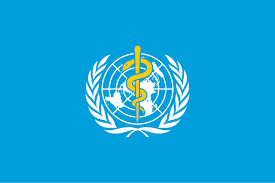
WHO European Region Retains Polio-Free Status Amid Persistent Global Threats
The WHO European Region has maintained its polio-free status for 2023, as confirmed by the European Regional Commission for the Certification of Poliomyelitis Eradication (RCC).
This annual designation, based on comprehensive surveillance reports submitted by member states, confirms no circulation of wild poliovirus within the region last year.
In addition, stringent surveillance systems were shown to be robust enough to promptly detect any imported cases or signs of virus circulation.
A significant milestone was achieved as the RCC formally closed the 2022–2023 outbreak of circulating vaccine-derived poliovirus type 2 in Israel, reflecting the effectiveness of rapid response efforts.
However, the RCC raised alarms over challenges that threaten this hard-won status, noting stagnated vaccination rates, incomplete containment measures, and insufficient outbreak preparedness in several countries.
“Polio-free status is not simply granted to the European Region—it must be confirmed every year based on detailed evidence,” stated Dr. Hans Henri P. Kluge, WHO Regional Director for Europe. “For over 20 years, sustained efforts to achieve high vaccination coverage, quality surveillance, and rapid outbreak response have prevented the virus from becoming re-established in this Region. These efforts must be commended, but also intensified as challenges to our collective defence against this virus increase.”
Rising Challenges and Regional Threats
Ongoing conflicts and health infrastructure challenges present acute risks for immunization programs across the region. Ukraine, for example, remains particularly vulnerable to poliovirus transmission due to suboptimal population immunity and the strain on its health system from continuous attacks on infrastructure.
The current poliovirus outbreak in Gaza further highlights the need for fortified regional vaccination programs, as unvaccinated children in Gaza remain at heightened risk, with potential spillover into neighboring countries.
Importation of polioviruses from other regions continues to present a significant threat. Recent detections in European environmental samples, including a September case in Spain linked to a vaccine-derived poliovirus from northern Nigeria, underscore the importance of vigilant monitoring and containment to prevent potential outbreaks. Fortunately, none of these detections have resulted in paralysis, but they remain under investigation.
Marking World Polio Day: Renewed Global Efforts
World Polio Day, observed on October 24, is an annual reminder of the global campaign to eradicate polio and the crucial role of vaccination in safeguarding children from this life-threatening disease.
With Rotary International as a key partner in the Global Polio Eradication Initiative, efforts remain robust worldwide to reach complete eradication.
First committed to by the World Health Assembly in 1988, the campaign to end polio has seen tremendous progress, with the European Region declared polio-free in 2002 and sustaining this status for over two decades. Nonetheless, the RCC’s findings emphasize the necessity of sustained vigilance and renewed commitments to immunization, containment, and rapid response, especially as poliovirus threats remain active beyond Europe’s borders.
The full report of the RCC’s 38th meeting is expected to be published soon, providing further insights and recommendations to strengthen the region’s defences against polio and other preventable diseases.